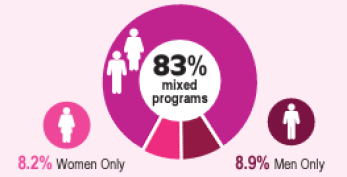

Applying interventions designed to reduce and manage the symptoms of substance use disorders.
Cannabis is one of the most widely used psychoactive substances in Canada.
The complex relationship between cannabis use and mental disorders has garnered significant attention as a public health issue
This is the first in a series of...
EFFECTIVENESS OF SCREENING AND BRIEF INTERVENTIONS
First instalment of a fortnightly course on the evidence for alcohol treatment and related topics. This instalment selects, explains and explores seminal and key research on the...
Working jointly the International Society of Substance Use Professional (ISSUP) Pakistan National Chapter and Drug Advisory Program (DAP) of the Colombo Plan, in collaboration with the US Department of State Bureau of International...
Il 16 settembre 2014 gli Stati membri dell'Unione europea (UE), rappresentati dal Comitato per la politica e l'azione nazionali in materia di alcol (CNAPA), hanno approvato il piano d'azione sul consumo di alcol da parte dei giovani e sul...
Sono stati identificati diversi fattori di rischio chiave per le malattie non trasmissibili (NCD), incluso l'uso dannoso di alcol.
Metà della popolazione mondiale beve alcolici e l'uso dannoso di alcol è la terza causa di cattiva salute...
Changing your lifestyle and making the decision to ditch bad habits can be a challenge for us all.
Researchers from Kings College London and the University of York recommend some simple techniques that have been scientifically proven to...
Smoking in England has decreased over the last decade. It is vital to monitor the trends and examine the factors that may be influencing the downward curve, so as to maintain the pattern and make predictions about future smoking rates.
A...
Abuso di sostanze e giovani: problemi critici è una fonte completa di informazioni sulle esigenze dei giovani per la valutazione, il trattamento e altri interventi a causa del loro uso improprio di sostanze. Evidenzia gli approcci che...
The International Consortium of Universities for Drug Demand Reduction (ICUDDR) will be holding its annual conference at the Sukosol Hotel in Bangkok Thailand, July 13-15, 2020. Conference registration will begin March 1st.
ICUDDR is...
With the generous support of the Scaife Family Foundation, the Institute for Research, Education and Training in Addictions (IRETA) is able to conduct this specialised program.
The program offers medical students an intensive learning...
Following their 2019 conference, the Lisbon Addictions team have gathered posters and information about the presentations from the event.
The co-producers have built coherent packages of topical strands, sessions and guided poster tours...
The Education and Training Unit of the National Dangerous Drugs Control Board (NDDCB) organised training on “UTC 06- Case Management for Addiction Professionals and UTC 07- Crisis Intervention for Addiction Professionals” for 28 staff...
Background: Commitment to change is an innovative potential mediator and mechanism of behaviour change (MOBC) that has not been examined in adolescents with cannabis use. The Adolescent Substance Abuse Goal Commitment (ASAGC) questionnaire...
To estimate trends in the prevalence of cannabis use and risk perceptions of cannabis use from 2005 to 2017 among United States people with and without depression.
Linear time trends of the prevalence of any...
Objective: Human resources are crucial for addiction treatment and prevention services, as well as for science and research. The aim of this historical case study is to explain and demonstrate the role of specialized university academic...
Drinking alcohol increases the risk of mouth cancer, pharyngeal (upper throat) cancer, oesophageal (food pipe) cancer, laryngeal (voice box) cancer, breast cancer, bowel cancer and liver cancer.
Having conversations with patients about...
Tobacco is the only legal drug that kills many of its users when used exactly as intended by manufacturers. WHO has estimated that tobacco use (smoking and smokeless) is currently responsible for the death of about six million people across...
There is increasing emphasis on screening, brief intervention, and referral to treatment (SBIRT) for unhealthy alcohol use in the general hospital, as highlighted by new Joint Commission recommendations on SBIRT. However, the...
This retrospective cohort study asks people who are in recovery or have not used alcohol or drugs for at least two years following meeting diagnostic criteria for having a SUD how many quit attempts they had made prior to success. The range...
GDS 2020 — GDS believes that the expertise and experience of people who use alcohol and other drugs can be used to inform the creation of better drug policy, whilst helping people use drugs more safely, regardless of the legal status of...
Share the Knowledge: ISSUP members can post in the Knowledge Share – Sign in or become a member